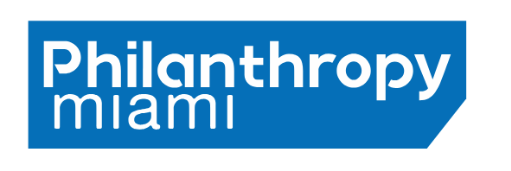In today’s nonprofit landscape, data is more than just a collection of numbers; it’s a valuable tool that can help your organization build stronger, more meaningful relationships with its donors. As nonprofits strive to make a lasting impact on their communities, understanding the power of data analytics in enhancing donor relationships is crucial. When nonprofits leverage data insights to personalize engagement and foster trust, they create a deeper connection with their supporters.
The Data-Driven Advantage for Your Nonprofit
In 2023, data is abundant and nonprofits have access to a wealth of information about their donors. From demographics and giving history, to online behavior and communication preferences, every interaction leaves a digital footprint. By using this data effectively, your nonprofit can gain a deeper understanding of its donors, enabling you to tailor your outreach and engagement strategies effectively.
Personalization for Impact with Your Donors
One of the key benefits of data analytics is the ability to personalize interactions with donors. Instead of sending generic messages to a broad audience, you can use data to segment your donor base and craft tailored communications. Personalization demonstrates that your organization values and understands your supporters, making your supporters feel more connected to the cause.
Example: Imagine a nonprofit that serves children in underserved communities. By analyzing donor data, they discover that a significant portion of their supporters are parents. Armed with this knowledge, the nonprofit can create content that specifically addresses the concerns and interests of parents, showcasing the direct impact of their contributions on children’s lives. This personalized approach resonates more deeply with parents, driving increased engagement and support.
Predictive Analytics for Targeted Donor Outreach
Predictive analytics takes data analysis a step further by identifying trends and patterns that can inform future strategies. Your team can use predictive analytics to anticipate donor behavior, such as identifying donors at risk of lapsing or those likely to increase their contributions. This allows you to proactively reach out to donors with tailored messages or requests, which can strengthen the relationship with your donors.
Example: A nonprofit dedicated to environmental conservation uses predictive analytics to identify donors who have shown a consistent interest in specific projects. By reaching out to these donors with project updates and personalized appeals, they increase donor retention and secure additional funding for those projects.
Transparency and Establishing Trust with Donors
Transparency is foundational to trust in the nonprofit sector. Donors want to know how their contributions are making a difference. Data analytics can help your organization provide donors with real-time insights into the impact of their support. Through engaging reports, you can showcase the progress of projects, the number of lives touched, and the funds allocated to different initiatives.
Example: A nonprofit that provides clean drinking water in developing countries uses data analytics to track the number of wells built and people served. They share this data on their website and in donor reports, allowing supporters to see the tangible impact of their contributions. This transparency builds trust and encourages continued support.
Cultivating Long-Term Relationships
Data insights are not only about acquiring new donors but also about cultivating long-term relationships. By continually analyzing donor data, your organization can adapt its strategies as the preferences and behaviors of your donors evolve. Taking this approach ensures that the donor experience remains engaging and relevant.
It’s important to remember that data analytics is not just a buzzword in the nonprofit sector; it’s a powerful tool for building stronger relationships with donors. By harnessing the insights derived from data, you can personalize engagement, predict donor behavior, foster trust through transparency, and cultivate long-term relationships. When you do so, you can create a donor-centric approach that strengthens your ability to make a meaningful impact on the communities you serve. As nonprofits continue to navigate the challenges of the modern world, data will undoubtedly play an increasingly pivotal role in their journey toward success.
Did you find this information useful? At PhilanthropyMiami, we’re committed to the growth and expansion of the nonprofit sector. We’re committed to empowering you with the knowledge and tools you need to take your nonprofit to new heights! Sign up for our signature programs and gain invaluable insights, connect with like-minded professionals, and unlock the secrets to creating a lasting impact.
